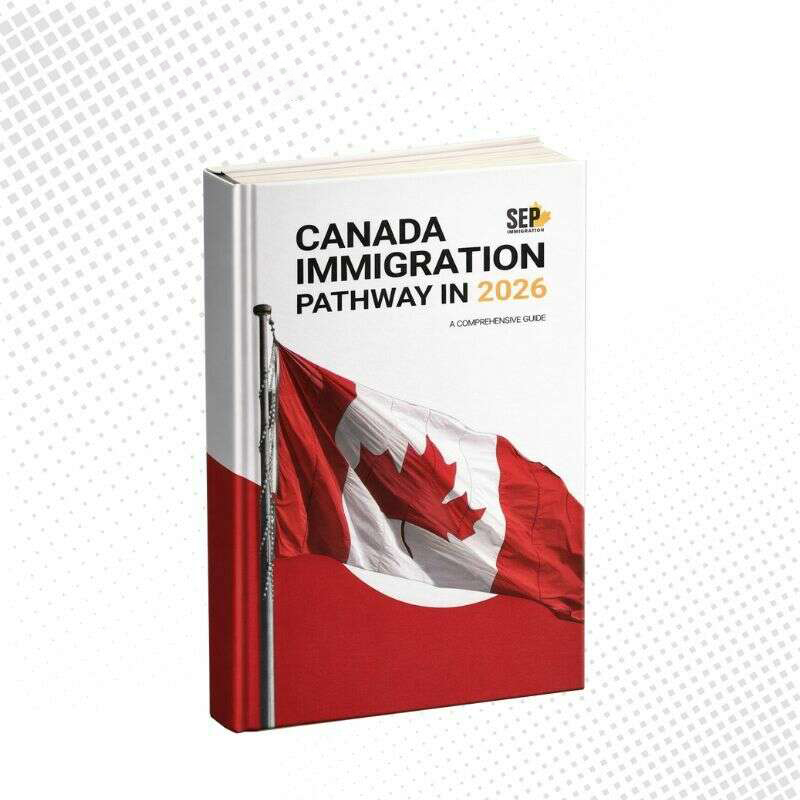Table of Contents
ToggleBeware of These 20 Tricks Used by Unauthorized Immigration Consultants!
Keep in mind that ICCRC is not currently authorized to follow-up the cases related to unlicensed immigration consultants but it is currently sharing complaints with the Royal Canadian Mounted Police (RCMP) and Canada Border Services Agency (CBSA).
It can sometimes be overwhelming to find out about immigration fraud; the Canadian Government is hosting a webpage containing the relevant information and links to reporting agencies about the procedure of reporting immigration fraud or abuse.
When the Canadian government orders the ICCRC to become the College of Immigration and Citizenship Consultants, it will have the authority to file an injunction against persons who serve as unlicensed immigration consultants and will be able to directly collaborate with foreign government authorities.
False Titles and Misleading Diplomas
Trick #1:
Unlicensed Immigration Consultants sometimes take advantage of titles that have different meanings but are likely to be mistaken for interchangeable terms. For example, the title ‘notario’ is not the same as ‘notaire du Québec’. The ‘notarios’ are not authorized to give immigration advice.
Only the following titles are licensed Immigration Consultants in Canada, i.e., people who are authorized to offer you immigration advice in exchange for a fee or other consideration.
· RCICs;
· Lawyers who are registered in any of 13 Law Societies of Canada;
· Notaires who are registered with the Chambre des notaires du Québec.
To check whether the Immigration Consultant of your choice is an authorized representative refer to the instructions available on the Government of Canada’s website via the link inserted below.
Trick #2:
An individual who has completed an immigration practitioner’s program and received a diploma is not yet a licensed Immigration Consultant. In order to provide Canadian immigration services for a fee, they must be registered with the ICCRC.
The fact that someone has completed an immigration education program does not indicate they are legally permitted to practice. Registration with ICCRC is required for immigration consultants. You can search the Council’s public register to find licensed professionals by several filters like their names, location of service, etc. For additional information about each consultant, you can click the “Contact” hyperlink.
ICCRC Public Register: https://iccrc-crcic.ca/find-a-professional/
Signatures are required, but not on forms with no or incorrect information
Trick #3:
If you are not requested to sign a retainer agreement, be cautious.
A retainer agreement (services contract/contract) is a document prepared by your Immigration Consultant, through which it is stipulated that in exchange for a fee, they will provide immigration services to you. Keep in mind that before any services are rendered, you must sign a retainer agreement/contract with an immigration consultant, which must be signed and dated by both you and the Immigration Consultant. Always get a copy of your files for yourself.
Trick #4:
Do not sign an agreement with a company, an agent, or anyone else but a licensed Immigration Consultant.
A Retainer agreement must be signed by two parties: You and the licensed Immigration Consultant. For this reason, the Immigration Consultant’s full legal name, as well as their license number, must be included in the retainer agreement. You can check their ICCRC Membership ID number on the council’s public register beforehand. The Immigration Consultant who’s signing a retainer agreement with you should also be the one who performs the immigration services for you.
Trick #5:
You must always sign a Use of a Representative Form (IMM5476)
The Use of a Representative Form (IMM5476) is a government-issued form that verifies that the Immigration Consultant you’ve chosen is allowed to represent your case. There are several sections on this form, including your first and last names, date of birth, and so forth. It also contains your Immigration Consultant’s first and last name, as well as their ICCRC Membership ID number and full address. The Use of a Representative Form (IMM5476) must be signed and dated by both you and the Immigration Consultant.
To confirm they are your authorized representative, any inquiry made by your Immigration Consultant must include a copy of the signed IMM5476.
Please keep in mind that even if the Immigration Consultant is not charging you for their services or they are a friend or family member, the IMM5476 is required and must be signed by both parties in any case.
Trick #6:
You should not sign any blank forms or forms that contain incorrect information under any circumstances.
It is definitely ill-advised, even a trap if your consultant asks you to sign a blank form. Before signing any form, be sure that all of the information is correct and thorough. Even if someone else fills out your forms, the accuracy of the information on them is ultimately your responsibility.
Trick #7:
In case the individual you hire to provide immigration services does not provide you with a copy of the forms you both signed, be careful.
Any forms you sign should always come with a copy for your records.

CHARGING FEES FOR SERVICES THAT ARE NEVER PROVIDED
Charging for services that are never provided is a common form of immigration fraud. Unscrupulous individuals may promise services like guaranteed visa approvals or job placements in Canada, only to take your money and disappear without providing anything of value. Always verify the credentials of any consultant, request written agreements, and make sure you receive receipts for any payments made. Additionally, ask for regular updates on your application status to ensure that progress is being made.
Payments You Make and Services You Get
Trick #8:
If you’re requested to pay in CASH, proceed with caution.
Because there is no record to verify that you paid, cash payments are typically untraceable.
Other payment methods are trackable (cheque, credit card, bank transfer) and may be confirmed by checking a bank statement.
Trick #9:
Ensure that all payments are accompanied by invoices and receipts.
Your signed Retainer Agreement specifies the fees you will be charged. Before you pay, you should be given an invoice explaining the fees, followed by a receipt proving your payment.
Trick #10:
Be wary if you are charged for a range of services, while the immigration service is offered free of charge.
The Immigration Consultant you work with is to draft a thorough Retainer Agreement through which all of the fees you should pay for their immigration services are shown in detail. If immigration services are provided free of charge, the Retainer Agreement must also specify that the total price for immigration services is $0.00.
In case you are to be charged for other services besides immigration, such as job placement, then the job placement services should be offered through a separate contract or agreement.
Licensed Immigration Consultants, i.e. RCICs, are solely authorized to provide immigration services. If a Regulated Canadian Immigration Consultant offered you a job placement service through a separate agreement or contract, be sure that they are a qualified and certified recruiter who is licensed to provide such services for a fee in the province or territory where the position is being offered in Canada.

FRAUDULENT PROMISES TO EXPEDITE PROCESS
Unauthorized consultants may claim they can speed up the immigration process for a fee, but there is no legitimate way to expedite applications beyond the standard processing times established by the Government of Canada. Paying someone to expedite your application is a scam that preys on individuals seeking quicker outcomes. All applications are processed according to standard procedures, with timelines determined by workload, visa type, and the completeness of the application. Be cautious of anyone offering faster processing for a fee.
FALSE PROMISES OF PERMANENT RESIDENCY AND CITIZENSHIP
Many unauthorized consultants falsely promise guaranteed permanent residency or citizenship in exchange for high fees. Since every immigration case is evaluated on its own merits, no one can guarantee a specific outcome. Be wary of anyone who claims to have “inside connections” or offers a “100% success” guarantee. Working with authorized representatives who give honest advice about your eligibility and chances is always the safest approach.
FALSE IMPERSONATION OF IMMIGRATION OFFICIALS
Some fraudulent consultants impersonate immigration officials, using fake identification or forged documents to gain your trust. Always verify the identity of anyone claiming to be an immigration official, and never provide personal information, payment, or documents without checking their legitimacy. Authorized representatives can be found on government registers and carry verifiable credentials.
UNWARRANTED THREATS OF DEPORTATION
Unauthorized consultants may use scare tactics, such as threats of deportation, to pressure individuals into paying extra fees or following fraudulent advice. These threats are intended to exploit vulnerable clients and rush them into quick decisions. Remember, legitimate immigration processes are governed by clear rules, and no one can force you to act against your rights as an applicant.
EMPLOYMENT-RELATED SCAMS
Employment-related scams exploit hopeful job seekers by promising guaranteed work permits, high-paying jobs, or fast-tracked pathways to Canadian residency in exchange for fees. Common tactics include fake job offers with upfront charges, claims of exclusive access to jobs or expedited LMIA approvals, and assurances that certain jobs will lead directly to permanent residency.
These scams often request personal information, press for quick agreements, or ask for payment for placement services practices that legitimate employers or licensed consultants would not engage in. To avoid these risks, verify all job offers and consult only authorized representatives, ensuring that you are dealing with registered immigration professionals and reputable employers.
Trick #11:
Keep your eyes open when immigration services are offered by travel agents, educational agents, and/or recruiters.
As part of a wider package, travel and educational agents and recruiters may provide immigration services or counsel. Though they may be authorized to provide immigration services for travel, study, or job, you must check their status as a RISIA or an RCIC before hiring them for immigration services.

EMPLOYMENT AGENCY SCAMS
Some employment agencies claim to offer jobs in Canada along with immigration assistance, but many of these offers are scams. Be cautious of agencies requiring upfront fees for job placements or promising “guaranteed” employment. In Canada, it is illegal for recruiters to charge individuals for job placements.
Always verify the legitimacy of any employment agency and ensure they are licensed to operate in the specific province or territory where the job is being offered.
Guarantees are Too Good to Be True
Trick #12:
Be careful if you are promised a certain time frame for processing an immigration application.
For whatever form of immigration application, there is no predetermined processing time. You may be given a time frame (for example, 8-12 weeks), but no visa center or officer can ever promise you a visa. That’s because issues and delays can arise at any time during the visa application process, such as background checks, medical exams, and re-issuance of application forms, among many other issues.
Trick #13:
If you’re offered a job and immigration at the same time, be cautious. For instance, ‘We will get you a job and obtain your immigration documents only for $10,000.’
In spite of the fact that moving to Canada and obtaining a job in Canada go hand in hand, they may require separate agents. You may also need to work with a licensed recruiter in addition to your Immigration Consultant.
No employer, recruiter, or Immigration Consultant should charge you a fee for finding a job.
Your prospective employer may be required to submit a Labour Market Impact Assessment (LMIA) application. In this scenario, if accepted, the Immigration Consultant will submit the LMIA together with your work permit application for Canada. Depending on their eligibility, certain foreign nationals may be exempt from the requirement of an LMIA or a Work Permit.
Trick #14:
“Application Approval Guaranteed”, no one can ever say!
Your immigration application’s outcome cannot be guaranteed. The visa officer makes the final decision on any immigration application. You won’t know the result of your application until you receive a written decision from the visa officer.
I Know Someone Who Knows Someone, or as They Say, ‘Connections’!
Trick #15:
Be careful if the individual you’re thinking about engaging for immigration services claims knowing someone in the Immigration Department who can assist you with your application.
The visa officer who processes your application makes an impartial judgment based on the merits of your case (the strength of the reason for your application with supporting evidence and documents). Nobody has any control over the result of any application.
Must-Check
Trick #16:
It is highly recommended to double-check your Immigration Consultant’s status on the ICCRC’s online public register to ensure that they are in good standing.
Be sure to check the ICCRC’s online public register to see if the Immigration Consultant of your choice has an ‘active’ status before you begin your application process with them. This shows that they are in good standing and can provide you with paid immigration counsel.
Please keep in mind that they are not permitted to represent your case if they have a status of Revocation or Suspension on ICCRC’s online public register.
Trick #17:
If you notice that instead of the Member Insignia, the ICCRC corporate logo is used, check the link associated with the logo to verify that the Immigration Consultant is registered with ICCRC.
Only ICCRC employees are permitted to use the ICCRC Corporate Logo. The ICCRC Corporate Logo cannot be used by RCICs (Regulated Canadian Immigration Consultants). RCIC members have their special Member Insignia.
Trick #18:
Check to see if your immigration consultant is covered by Errors and Omissions insurance.
Errors and Omissions (E&O) insurance is required for all authorized Immigration Consultants.
Trick #19:
When you ask specific questions regarding immigration or the ICCRC’s Code of Professional Ethics, be wary if the person you are planning to hire for immigration services shows an obvious lack of competence.
Licensed Immigration consultants embark on their careers with a fundamental depth of knowledge, which develops as they gain experience. If they are not competent to represent you for the immigration service you require, they are obligated by the Code of Professional Ethics to declare that. Please note that Unlicensed Immigration Consultants are more likely to have inadequate immigration knowledge and are not required to follow a code of conduct.
Everyone Must Follow the Code of Ethics
Trick #20:
Never trust the person who tells you to lie on your immigration application.
The act of lying on an immigration application is known as misrepresenting yourself. For misrepresentation, the punishment is a five-year prohibition from submitting any form of application to Canada. This will be on your immigration record and might impair your ability to apply for any Canadian visa.
International Student Scams
International students are often targeted by scammers posing as immigration consultants or representatives from educational institutions, offering guaranteed admissions, expedited visas, or fake scholarships in exchange for high fees.
Always verify the authenticity of educational institutions and representatives by contacting the school directly through their official website, rather than relying on third-party agents. Additionally, ensure your representative is registered with ICCRC or RISIA to confirm they are authorized to provide immigration-related services.
Why choose us?
We have been helping many applicants to become permanent residents for years and we have a high success rate. Our clients from almost 20 different countries have experienced this with us and you can be the next successful one. We know how to prepare documents and how to make your immigration process smooth and easy for you. Contact us HERE to start the process today!
If you are not a Canadian Permanent Resident yet and you are not sure what the best way for you to immigrate to Canada is, please fill out our assessment form HERE and we will get back to you with your possible options.





